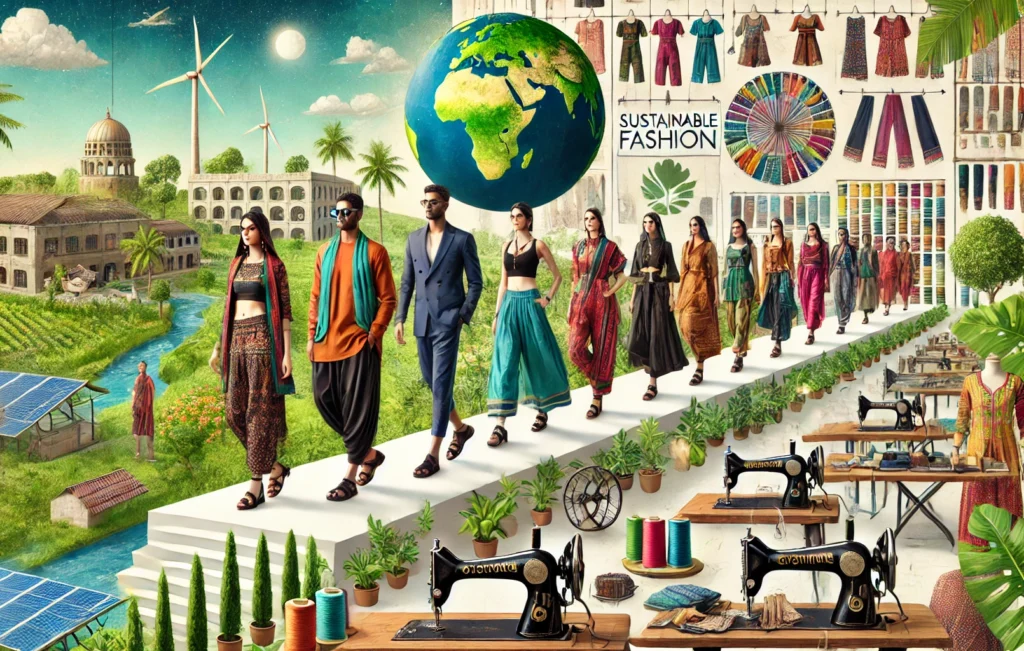The eco-fashion revolution in India is beginning to take shape as various brands try to redefine design, sustainability, and moral practices. Explore five groundbreaking labels fighting for a more environmentally friendly, responsible future for fashion. In a world pushing for a change through creating more responsible customers, the eco-fashion movement of India is being transformed in a remarkable manner. Independent Indian companies are incorporating sustainability, ethical sourcing, and social responsibility into their business models while staying true to contemporary style. The following Indian brands are, thus, the first to implement sustainable fashion.
1. No Nasties: Pioneering Organic and Fair Trade Fashion
No Nasties is at the forefront of India’s sustainable fashion movement. The brand was established in 2011 by the owners of Goa and started with the introduction of 100% organic cotton apparel, opting for a completely ethical and fair trade chain. Through the non-inclusion of toxic pesticides, GMOs, and the application of artificial fertilizers, No Nasties has given environmental welfare top priority, and, in addition to that, they provide fair payment for farmers and safety on the farm. Their simplified yet hip designs are in high demand among eco-friendly consumers who value both style and meaning.
2. Doodlage: Upcycling Waste into High-Fashion
Doodlage is the bomb in the Indian fashion world. It has invented a unique method of upcycling fabric waste like no other in the industry. Lead by Kriti Tula, they have one-of-a-kind pieces produced by weaving together pieces otherwise scheduled for landfills by manufacturers. Doodlage turns waste into high fashion; thus, it reduces the need for the landfill and the eco-footprint of the production process. Their fusion of contemporary design with sustainability has caught the eye of people who are in the vanguard of eco-friendly fashion.
3. B Label by Bombay Hemp Company (BOHECO): Fashioning A Future with Hemp
B Label, the apparel division of Bombay Hemp Company (BOHECO), is redefining fashion through hemp-based textiles. Hemp, a rapidly renewable resource, requires minimal water and no pesticides, thus being a sustainable alternative for other fabrics. B Label delivers yet another clothing line with one-of-a-kind fashion products that touch the standards of longevity and effortless elegance. The aim is to have hemp as a largely accepted progressive-course fabric that will change India’s textile industry for the better.
4. Upasana: Weaving Social and Environmental Responsibility
A slow-fashion brand from Auroville, Tamil Nadu, Upasana marries sustainability with social weight. Their work involves the well-being of local weavers and artisans, reviving the art of traditional Indian textiles while respecting ethical labor practices. With organic cotton, natural dyes, and zero-waste designs—collections that represent sustainable fashion philosophies. More than sustainability, many involve community upliftment projects, disaster relief, and surgical restoration programs for women’s empowerment.
5. Rengé: Where Luxury Meets Sustainability
Rengé is a sustainable luxury fashion label that intersects with the economy and is directed towards effective business. Rengé creates chic, limited-edition lines from deadstock fabrics—leftover fabrics from big fashion houses—so as to keep the waste trailing to the least. The cruelty-free ethical production is done by working closely with local artisans to come up with elegant, timeless pieces representing Rengé’s commitment to slow fashion, from the manner of sourcing, designing, and making garments to the finishing of high-quality apparel insuring longevity.
Conclusion
The eco-fashion landscape in India is rapidly evolving, with brands like No Nasties, Doodlage, B Label, Upasana, and Rengé leading the pack. Their contribution towards sustainability, ethical production, and avant-garde design is revolutionizing fashion and inspiring the next generation of conscious consumers. As the demand for eco-friendly fashion continues to rise, these brands show that style and eco-friendliness can go hand in hand.

